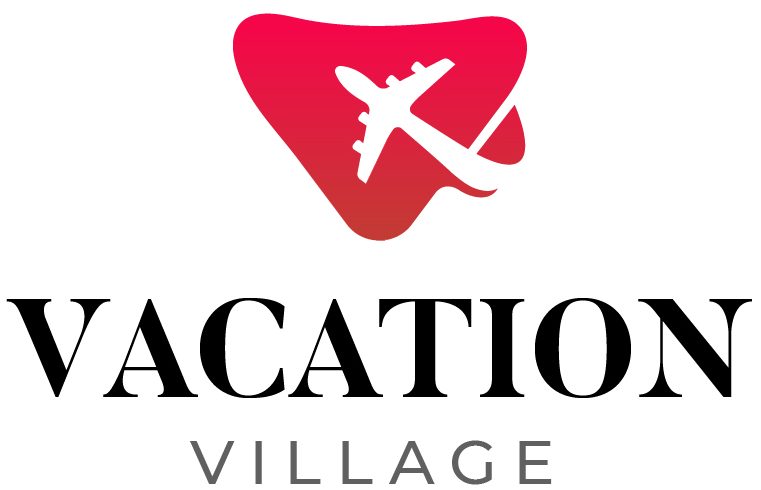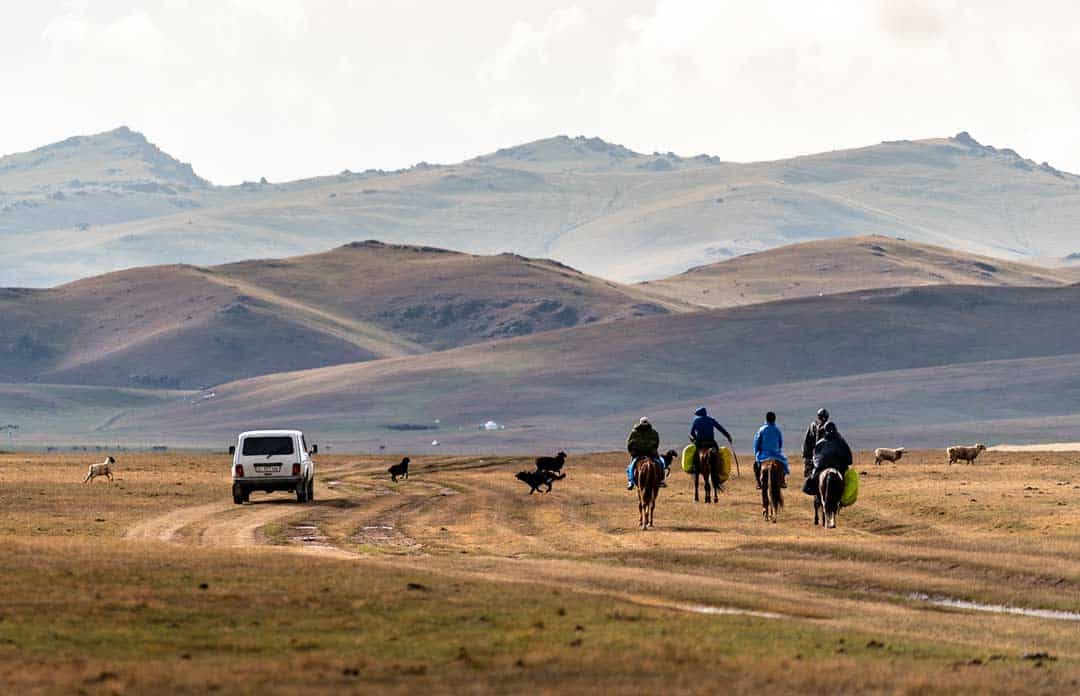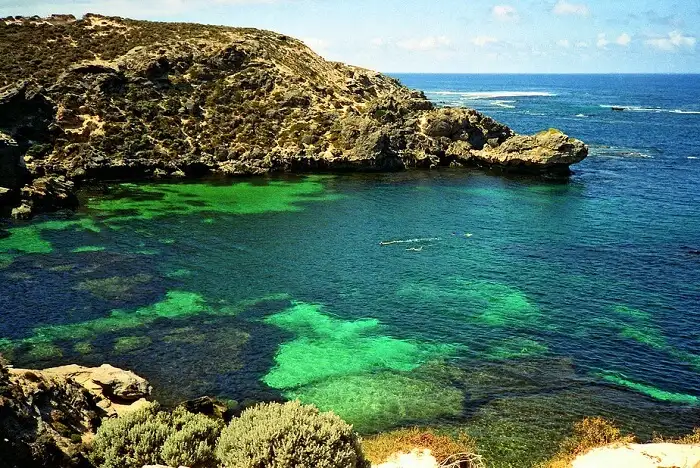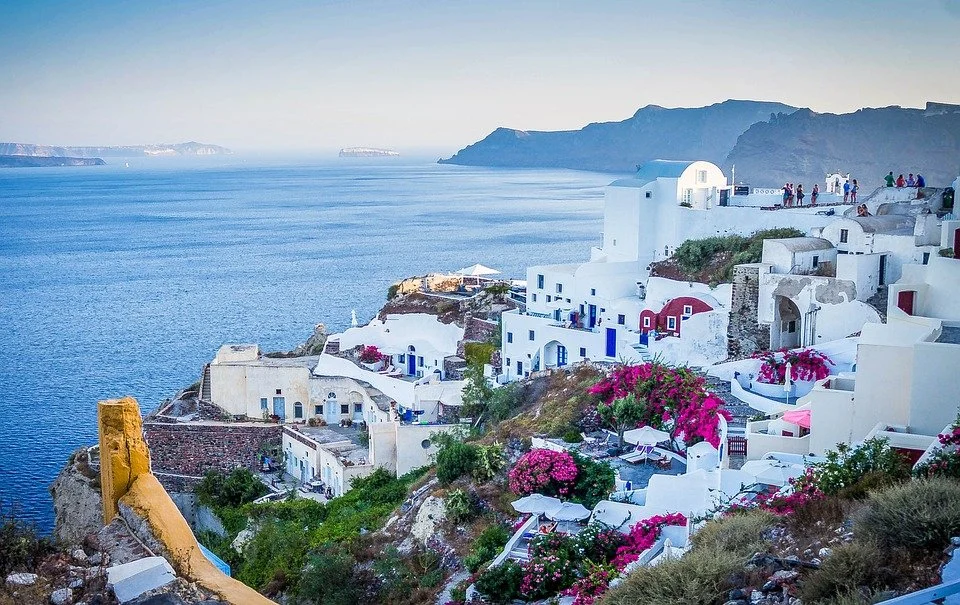Our 15 Best Travel Tips from 13 Years on the Road
We have been fortunate enough to travel the world for more than a decade. Living semi-nomadic lives, we’ve gained quite a few travel tips.
We didn’t want to write a generic list of travel advice or life lessons. Instead, we put together this article that includes a few actionable and not so obvious tips to help you make the most out of your adventures.
These are our top travel tips
These great tips can make your next trip more enjoyable, no matter how long it is.
- Slow Travel
We always respond to anyone who asks us what our top travel tip is: slow down.
When you go on vacation, it’s normal to try to fit in as many amazing activities and destinations as possible. Your time off work is precious. We can guarantee you that traveling slowly will bring you more memories and valuable experiences.
Travel is exhausting unless you are staying in an all-inclusive resort. You are constantly taking in new sights, smells, and tastes wherever you go.
If you are anything like us, you will be out walking all day long, exploring museums, climbing views, and weaving your way through narrow alleyways as soon as you leave your hotel. You’re on vacation, but not taking a break!
You should also consider that you will be on a long-term journey and need to think about where you are going, how you get there, what visas you need, how to manage your finances, etc.
It is important to slow down and not become overwhelmed by all this.
Spend more time in each place you visit. Spend the morning sightseeing and the afternoons relaxing in a café. Do not try to squeeze a million activities into a few hours.
You can also stay longer in a place to discover hidden gems and try new restaurants, or even get better rates on your accommodation.
We have done it all. We spent seven months traveling in one country and tried to do everything in one week. Slow travel is more rewarding and healthier for your soul, we can assure you.
- When booking flights, think outside the box
The most expensive part of your trip can depend on where you’re going. You might find the price of a flight to be prohibitive if you are going somewhere remote.
We try to think outside the box when searching for airfares.
To find the best deals, you should first try many different websites. As an example, you can save money on flights by using Wego or simply do online searches.
Instead of just hitting ‘Sydney-London’, you might try “Sydney/Kuala Lumpur/Bangkok” or any other major hub. Then, go to London to check if specials are available on airlines not part of the same alliance.
Multi-trip tickets are also available if you need to stop in another city. This is how we were able to get 3 days in New York City at the same cost as transiting through.
- Learn some of the local language
Ever had someone approach you in your hometown and ask you a question in a language that you don’t speak? It is unlikely that you will ever experience this if you live in a country like Australia or the United States.
It is not possible. In some cases, it might even be considered unacceptable.
Let’s turn the coin: Have you ever been to a country where you didn’t even know the language spoken there? You’ve ever just approached a local person and asked them a question or query in English.
I’m going out on a limb to say yes. We’ve all done it.
It seems that there is a double standard in speaking local languages depending on whether you’re on vacation or at home. It’s nearly impossible to learn a whole language for a country you are only visiting for a few weeks.
It doesn’t mean that you shouldn’t try, however.
The next best tip for traveling is to try to learn the basics in the language of the country you’re visiting. Learn the basic words and phrases of the local language, such as “hello”, “thank you”, “goodbye,” and “where is your bathroom?” so that you can communicate with a local in their language.
This level of respect can make positive interactions between locals and tourists easier. You don’t always have the time or patience to use all of these apps. Ask a local to help you learn about the country and write down your keywords in a notebook. Keep that notebook with you at all times.
- Buy Travel Insurance
Travel insurance is not affordable if you don’t have the funds to pay for it. This saying has been repeated thousands of times. It is true.
Many people who refuse to purchase travel insurance believe it’s a waste money or that they don’t have anything of value.
All of this is irrelevant, as we know from personal experience. Alesha was suffering from severe stomach pains and visited a Thai hospital. After only a few hours, we were presented with a USD$1000 bill.
Our former roommate fell while rock climbing in Canada. He suffered a broken leg and was admitted to the hospital with a blood infection. His bill was $150’000 after he spent six weeks in a hospital bed.
Accidents can happen, even if you don’t expect to get sick or do not plan on engaging in extreme sports.
- Before you agree to anything, ask for prices
Never, ever, take a taxi, book a tour, or order a meal at a local eatery without knowing how much it will cost.
In many countries, untrustworthy locals might see tourists as walking money bags (particularly taxi drivers). If they don’t know how much something is worth, they may think they can charge more at the end.
You have already received your product/service and you can’t argue for a lower price even if they are trying to scam you.
Our top travel tip is to always negotiate and reach an agreement on a price before you go. Also, make sure that all details are finalized (one-way, both ways, per person, total).
- Get a VPN
If you are like us, and you connect to random WiFi networks all over the globe, then you should learn how to protect sensitive data while browsing the internet.
Hackers are becoming smarter and more clever. They might monitor web traffic on unprotected networks and, if you happen upon your bank login details or credit card details, your accounts could be compromised.
To protect our money and other sensitive information, we use VPNs to establish secure connections.
You can also block certain countries from accessing social media sites and platforms. A VPN will allow you to bypass these restrictions.
This is also useful if you want to use a site that is geo-restricted or has different prices for customers who are buying products from other countries.
We’ve been charged up to 25% more by websites because we tried to buy it in Australia. You can get the exact same item for less if you move to the USA.
Express VPN has been working flawlessly for us since 2014. Click this link to receive your 30 day free trial.
- Apply for a credit/debit card that has zero international transaction fees
Did you know that banks often charge fees for foreign currency purchases or international ATM use?
This usually includes 3% for currency conversions and $5 for international use. Although it might not seem like much, this can add up if you are on a long vacation or make frequent purchases in foreign currencies.
To keep our expenses down, we carry several different credit and debit cards that have zero international transaction fees. Because banks don’t want to make more money.
While you will need to research which banks offer these products in each country, we have found some great ones here in Australia.
Bankwest offers a Platinum MasterCard with 0 annual fee and no overseas transaction fees
CitiBank offers a debit card with no fees to withdraw money from an ATM overseas. However, you will still need to pay the ATM fee in your local area.
ANZ has a ‘Travel Reward’ Visa credit card. It doesn’t charge fees for international credit transactions and lets you accumulate frequent flyer miles.
- Do not exchange money in your home country
When it comes to money, a common question that we receive from our readers, friends, and family is how to have cash available for travel. They keep hearing the same thing over and over: Get your money to the country.
No more needing to have traveller’s checks or exchanging money in your country before you go on vacation.
These methods can actually cost you money!
Banks and airports offer terrible exchange rates for international money. If you give them your business, you will end up losing a lot in currency conversions.
We recommend that you wait until you’re in the country before withdrawing money from an ATM. You remember how you got that amazing debit card with no international transaction fees? It’s going to do wonders.
Even if you don’t have one, withdrawing money from an ATM is almost always a better option than exchanging money at the airport or bank.
If you always need local money for landing, there are ATMs at most airports. While they may have higher ATM fees than others, they will usually give you the current market rate for currency exchanges.
- Keep multiple copies of your important documents
It will be surprising how many places request a photocopy or, in certain countries like Iran, even your wedding certificate.
We recommend that you have a few photocopies of important documents in your bag so you can show them if you are ever asked.
You can also take photos and save them anywhere you go. Email them to yourself, upload them on Google Drive or Dropbox and store them in an easily-findable folder on your smartphone.
ABC – Always Be Charging This is especially important for those who use their phones, cameras, and laptops constantly. Make sure they are charged!
Nothing is more frustrating than going out on a full-day of exploration and discovering that your phone/camera has stopped working.
It’s impossible to predict when you might be able to charge your electronics. So if you happen to find yourself with a spare powerpoint or some time, make sure you have everything charged.
A USB battery pack is another great accessory that you should get. This allows you to charge smaller items throughout your day without the need to locate an electrical outlet.
- Do your laundry yourself to save time and money
It’s not a good idea to travel as a’stinky backpacker’. Make sure you shower regularly and have clean clothes.
Traveling is hard because you don’t have the time or ability to find a laundromat to wash your clothes. Getting your hotel to do it can also be expensive. We recommend that you do your laundry yourself.
We have hand-washed all our clothes for years (in the sink or in the bath) and then we hang them up in our room using a pegless clothesline.
This is why we do it. It saves money. Some hostels and hotels offer laundry services at a very reasonable cost, while others have machines that guests can use, but many charge outrageous prices.
It also ensures that we don’t lose any clothing. We can’t count how many times we have picked up laundry and found socks, underwear, or even t-shirts missing.
Third, time. Third, time. We can wash our clothes at night and hang them up before going to bed in the morning.
We recently bought a Scrubba “travel washer” to make laundry more simple. We love it so far.
- Get Quick-Dry Clothes
This is a follow-up to the laundry tip. Always pack quick-dry clothes when you travel. This reasoning is quite obvious.
Quick-dry clothing refers to clothes that dry quickly. This is great if you have to do laundry quickly or are doing outdoor activities that might make you sweat (or end up in a rainstorm).
It will dry completely if you hang it up for an hr with some sun or breeze. You can also put on a damp shirt to dry it.
Kathmandu is our favourite brand for quick-drying clothing.
- Pack Ear Plugs
Even if your world is the most sleepy, having earplugs in your bag could be the best (and cheapest!) item you bring on vacation.
You never know what you might encounter, from loud music on the overnight bus to heavy snoring in the tent right next to you.
It doesn’t matter if you have fancy equipment. You can use the same foam earplugs that you buy from a hardware store.
- Always bring a water bottle
You should take care of the environment by carrying a reusable aluminum water bottle.
Instead of carrying around plastic bottles to drink water while you’re out and about, bring a metal bottle along with you.
Tap water is available in North America, Europe, Australia, New Zealand and most parts of South America.
You don’t have to buy bottled water if you are lucky enough to travel in one of these countries.
If you are going to be in an area where tap water is not available, we recommend purchasing the largest water bottle possible (5L, 10L, etc.) and refilling it before you go out for the day. You’ll reduce your plastic consumption.
Thailand, for example, has a number of reverse osmosis machine on each block. Most bars and hotels have water dispensers that will gladly fill your water bottle for you.
- Get a local SIM card for your phone
Accessing the internet while traveling is essential in this digital age. There are a million reasons why you should always have access to your phone data, from booking last-minute accommodation to checking Google Maps to sharing your best travel photos on social media.
If your mobile plan does not allow international data roaming free of charge, you could be subject to outrageous fees the second you turn on your phone in a foreign country.
If you are on a long journey, even if your provider offers international roaming at $5-10 per day, it will quickly add up.
We personally get a prepaid SIM card that has data in all the countries we will be visiting for at least a week. This is a great deal, and you might be amazed at the price!
In Kyrgyzstan, for $7, we received a 30-day prepaid card with 50gb 4G data. In Romania, 10gb cost about $10. Most countries, except Canada, offer prepaid deals that are very attractive.
We recommend that you go to a phone shop directly if you have the time. They will almost always be less expensive than the airport SIM deals.
This will only work if your phone is unlocked. To ensure you get the best deal, do some research before purchasing a SIM card.



